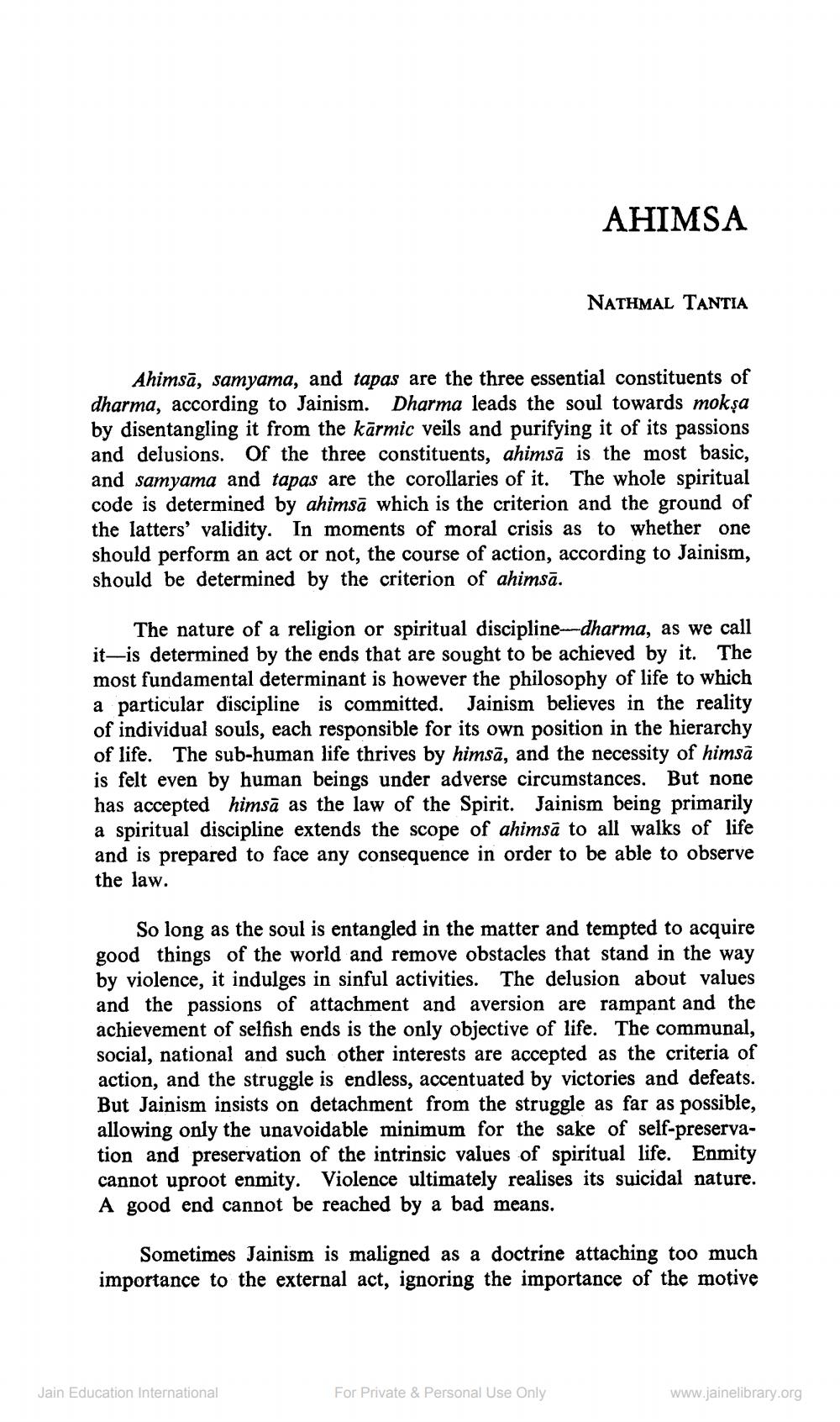________________
AHIMSA
Ahimsa, samyama, and tapas are the three essential constituents of dharma, according to Jainism. Dharma leads the soul towards mokṣa by disentangling it from the karmic veils and purifying it of its passions and delusions. Of the three constituents, ahimsa is the most basic, and samyama and tapas are the corollaries of it. The whole spiritual code is determined by ahimsa which is the criterion and the ground of the latters' validity. In moments of moral crisis as to whether one should perform an act or not, the course of action, according to Jainism, should be determined by the criterion of ahimsa.
NATHMAL TANTIA
The nature of a religion or spiritual discipline-dharma, as we call it is determined by the ends that are sought to be achieved by it. The most fundamental determinant is however the philosophy of life to which a particular discipline is committed. Jainism believes in the reality of individual souls, each responsible for its own position in the hierarchy of life. The sub-human life thrives by himsā, and the necessity of himsa is felt even by human beings under adverse circumstances. But none has accepted himsā as the law of the Spirit. Jainism being primarily a spiritual discipline extends the scope of ahimsa to all walks of life and is prepared to face any consequence in order to be able to observe the law.
So long as the soul is entangled in the matter and tempted to acquire good things of the world and remove obstacles that stand in the way by violence, it indulges in sinful activities. The delusion about values and the passions of attachment and aversion are rampant and the achievement of selfish ends is the only objective of life. The communal, social, national and such other interests are accepted as the criteria of action, and the struggle is endless, accentuated by victories and defeats. But Jainism insists on detachment from the struggle as far as possible, allowing only the unavoidable minimum for the sake of self-preservation and preservation of the intrinsic values of spiritual life. Enmity cannot uproot enmity. Violence ultimately realises its suicidal nature. A good end cannot be reached by a bad means.
Jain Education International
Sometimes Jainism is maligned as a doctrine attaching too much importance to the external act, ignoring the importance of the motive
For Private & Personal Use Only
www.jainelibrary.org




